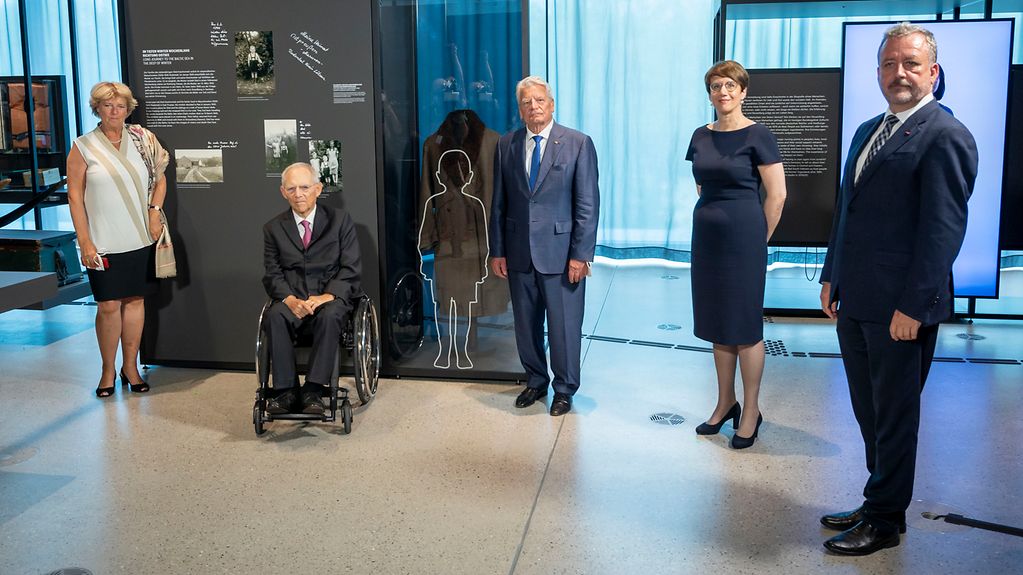Documentation Centre opened
Germany now has a unique place of learning and remembrance focusing on forced migration in the past and present. The Documentation Centre for Displacement, Expulsion, Reconciliation was officially opened on 21 June 2021 by Federal Chancellor Angela Merkel and Minister of State for Culture Monika Grütters.
2 min reading time

Following the opening, the Director of the Documentation Centre, Gundula Bavendamm, guided the guests of the ceremony through the exhibition.
Photo: Thomas Köhler
By opening the centre, “Germany is facing up to a historical truth that has long been insufficiently recognised: namely the immeasurable suffering of millions as a result of displacement and expulsion during and after the Second World War unleashed by Germany,” said Minister of State for Culture Grütters. She said she was grateful that the opening day was finally able to send out a visible signal against displacement and expulsion – a commitment adopted in the coalition agreement as long ago as 2005.
Federal Chancellor Angela Merkel ceremoniously opened the Documentation Centre for Displacement, Expulsion, Reconciliation via live stream. At present, “more people are suffering forced displacement around the world than ever before”, said the Federal Chancellor in her address. As Merkel stressed, this was another reason why the issues of displacement and expulsion “regrettably remained as topical as ever”. With a view to the future of remembrance, Merkel emphasised: “It is up to society at large to cultivate a living politics of remembrance – in particular among the young, who will no longer have the privilege of being able to speak to contemporary witnesses in person.”
Guests at the ceremony included Bundestag President Wolfgang Schäuble, former Federal President Joachim Gauck and former Minister of State for Culture Bernd Neumann.
Focus on those affected by displacement and expulsion
People mainly suffer displacement or expulsion as a result of war and armed conflict. They are forced to build a new life far from home, generally in adverse circumstances. The Documentation Centre focuses on those affected – not only Germans, but all those who have had to undergo this experience. By addressing the causes of displacement and expulsion and the human suffering they involve, the Documentation Centre seeks to fill a gap in Germany’s historical and memorial landscape.
As a place of learning and remembrance, the Documentation Centre has a surface area of more than 5,000 square metres: in addition to the permanent exhibition, it houses regular special exhibitions, a library with a contemporary witness archive and a silent room as well as organising educational programmes and events. It will be open to the public from 23 June 2021 onwards. Admission is free.
More than coming to terms with the past
In her speech, the Minister of State for Culture and the Media also thanked the Director of the Federal Foundation for Displacement, Expulsion and Reconciliation, Gundula Bavendamm, as well as the international academic advisory group involved. By offering a range of different perspectives, the documentation centre seeks to do much more than come to terms with the past, she said. According to Grütters, it points the way forward to the future of a united Europe in a spirit of reconciliation.